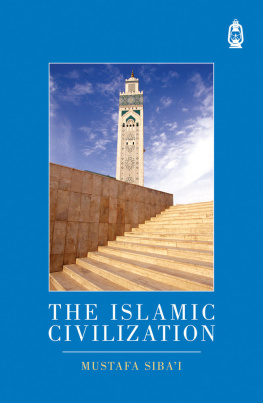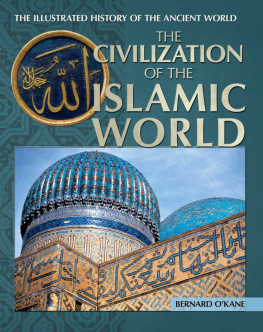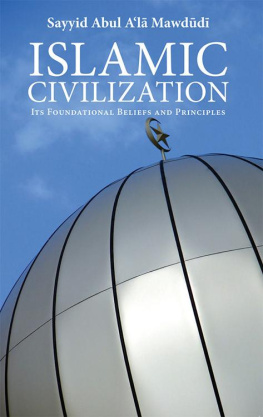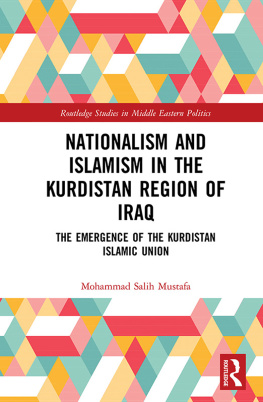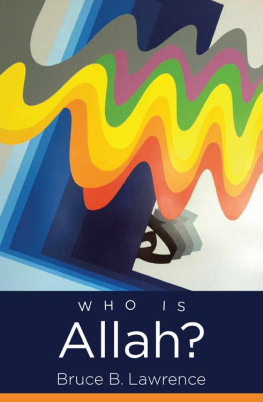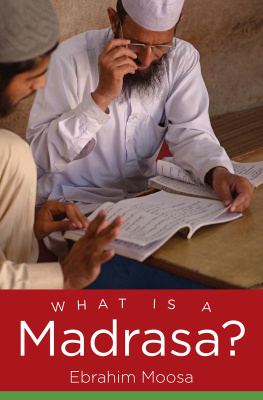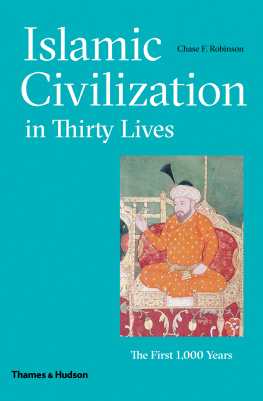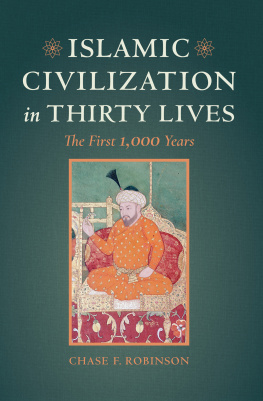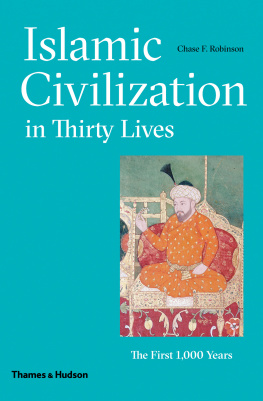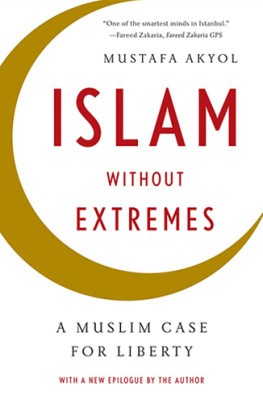Mustafa Sibai - The Islamic Civilization
Here you can read online Mustafa Sibai - The Islamic Civilization full text of the book (entire story) in english for free. Download pdf and epub, get meaning, cover and reviews about this ebook. year: 2018, publisher: Claritas Books, genre: Religion. Description of the work, (preface) as well as reviews are available. Best literature library LitArk.com created for fans of good reading and offers a wide selection of genres:
Romance novel
Science fiction
Adventure
Detective
Science
History
Home and family
Prose
Art
Politics
Computer
Non-fiction
Religion
Business
Children
Humor
Choose a favorite category and find really read worthwhile books. Enjoy immersion in the world of imagination, feel the emotions of the characters or learn something new for yourself, make an fascinating discovery.
- Book:The Islamic Civilization
- Author:
- Publisher:Claritas Books
- Genre:
- Year:2018
- Rating:5 / 5
- Favourites:Add to favourites
- Your mark:
- 100
- 1
- 2
- 3
- 4
- 5
The Islamic Civilization: summary, description and annotation
We offer to read an annotation, description, summary or preface (depends on what the author of the book "The Islamic Civilization" wrote himself). If you haven't found the necessary information about the book — write in the comments, we will try to find it.
The Islamic Civilization — read online for free the complete book (whole text) full work
Below is the text of the book, divided by pages. System saving the place of the last page read, allows you to conveniently read the book "The Islamic Civilization" online for free, without having to search again every time where you left off. Put a bookmark, and you can go to the page where you finished reading at any time.
Font size:
Interval:
Bookmark:


Claritas Books
Bernard Street, Swansea, United Kingdom
Milpitas, California, United States

Claritas Books 2017
This book is in copyright. Subject to statutory exception and to the provisions of relevant collective licensing agreements, no reproduction of any part may take place without the written permission of Claritas Books.
First Edition: July 2002/Rab al-Thn 1423 (hardback)
Second Edition: September 2007/Ramadan 1428 (paper)
THE ISLAMIC CIVILIZATION
by Mustafa Sibai
translated by Sharif H Banna
A CIP catalogue record for this book is available from the British Library
ISBN: 978-0-953758-26-5
Special thanks to
Omar, Attia, Alia, Muazzem, and Nadim
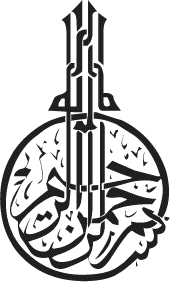
DR. MUSTAFA SIBA was born in 1915 in the city of Hams, Syria. He memorised the Quran at a very young age. His primary and secondary studies were completed in the Masudiyyah School. He studied the Islamic Sciences with his father Shaykh Hasani Siba and in circles with great scholars and jurists of Hams. From the young age of eighteen he used to deliver the Friday khubahs in the absence of his father. In 1933, he went to Egypt and enrolled at the University of Al-Azhar to study fiqh. Upon completing his studies in fiqh, he enrolled at the Ul al-Dn Faculty of Al-Azhar and excelled in his studies. In 1949, he completed his Ph.D. on the theme of The Position of Sunnah in Legislation. In 1950, he was appointed professor of law at the University of Damascus, and in 1955, he established the faculty of Sharah at the same university. He established the Muslim Brotherhood in Syria in 1945. Dr. Siba was elected to the Syrian Parliament from 1949-1954. He passed away in 1954.
contents
foreword
There once was a civilization that was the greatest in the world. It was able to create a continental super-state that stretched from ocean to ocean and from northern climes to tropics and deserts. Within its dominion lived hundreds of millions of people, of different creeds and ethnic origins.
One of its languages became the universal language of a large part of the world and the bridge between the peoples of a hundred lands. Its armies were made up of people of many nationalities, and its military protection allowed a degree of peace and prosperity that had never been known. The reach of this civilizations commerce extended from Latin America to China, and everywhere in between.
And this civilization was driven more than anything, by invention. Its architects designed buildings that defied gravity and its mathematicians created algebra and algorithms that would enable the building of computers and the creation of encryption. Its physicians examined the human body and found new cures for disease, whilst its astronomers looked into the heavens, named the stars, and paved the way for space travel and exploration. Its writers created thousands of storiesstories of courage, romance and magic. Its poets wrote of love, when others before them were too steeped in fear to think of such things.
When other nations were afraid of ideas, this civilization thrived on them and kept them alive. When the censors threatened to wipe out knowledge from past civilizations, this civilization kept the knowledge alive and passed it on to others.
While modern Western civilization shares many of these traits, the civilization Im talking about was the Islamic world from the year to 1600 , which included the Ottoman Empire and the courts of Baghdad, Damascus and Cairo, and such enlightened rulers as Sulaymn the Magnificent.
Although we are often unaware of our indebtedness to this other civilization, its gifts are very much a part of our heritage. The technology industry would not exist without the contributions of Arab mathematicians. Sufi poet-philosophers like Rm challenged our notions of self and truth, and leaders like Sulaymn contributed to our notions of tolerance and civic leadership.
Perhaps we can learn a lesson from this example: It was leadership based on meritocracy, not inheritance. It was leadership that harnessed the full capabilities of a very diverse population, which included Christian, Islamic, and Jewish traditions.
This kind of enlightened leadership that nurtured culture, sustainability, diversity and courage led to years of invention and prosperity.
In these dark and serious times, we must affirm our commitment to building societies and institutions that aspire to this kind of greatness. More than ever, we must focus on the importance of leadership, both bold acts of leadership and decidedly personal acts of leadership.
The preceding descriptions are not the words of a famous Muslim scholar, but that of Carly Fiornia, the CEO of Hewlett Packard, ending her speech on Technology, Business and Our Way of Life: Whats Next? held in Minnesota (September 2001 ).
Dr. Tara Chand, a distinguished scholar and historian of India, said, in his Presidential address to the Fourth All India Islamic Studies Conference in December 1964 , For a thousand years this civilization was the central light whose rays illumined the world. It was the mother of European culture, for men reared in this civilization were the masters in the Middle Ages at whose feet the Spaniards, the French, the English, the Italians and the Germans sat to learn philosophy, science, mathematics, astronomy, chemistry, physics, medicine and industrial techniques. Their names were household words.
One could quote more statements of historians, academics, leaders and thinkers who, despite not being Muslims themselves, highlight the contribution of Islam to human civilization. Is it such a surprise that those who do not adhere to the Islamic faith can hold the civilization it created in such high regard? I think not.
Islamic Civilization was a blessing for humanity at large and not just for those who believed in the Islamic faith. The examples of justice, intellectual advancement, philanthropy, vibrant culture, equality, tolerance and morality are yet to be paralleled by any other human civilization. It was because the Prophet Muammad  was sent as a mercy to mankind that the civilization he built could only have mercy and justice as its foundations.
was sent as a mercy to mankind that the civilization he built could only have mercy and justice as its foundations.
The challenge facing Muslims of today is the reconstruction of this great Islamic Civilization and reviving its unique legacy. Revival is required in every strata of human society with comprehensive problems requiring comprehensive solutions. Two essential elements are required for such a program of revival: vision and power. In the words of the great poet and philosopher Muhammad Iqbal, Vision without power does bring moral elevation but can not give a lasting culture. Power without vision tends to become destructive and inhuman. Both must combine for the expansion of humanity.
This book written by Dr. Mustafa Siba ( 1915 1964 ) is a collection of lectures he delivered on Syrian Radio between September and December 1955 . Dr. Mustafa Siba was a leading figure of the Muslim Brotherhood as well as being a great scholar of Islam. Shaykh Abul Hasan Ali Nadwi says about him, He is an embodiment of steadfastness. His long struggle spread over different fieldsfrom the battlefield of Palestine to the Syrian Parliament, from the office of the leader [of the Muslim Brotherhood in Syria] to the oceans of compiling, writing and journalism, from the pulpit of speech and
Next pageFont size:
Interval:
Bookmark:
Similar books «The Islamic Civilization»
Look at similar books to The Islamic Civilization. We have selected literature similar in name and meaning in the hope of providing readers with more options to find new, interesting, not yet read works.
Discussion, reviews of the book The Islamic Civilization and just readers' own opinions. Leave your comments, write what you think about the work, its meaning or the main characters. Specify what exactly you liked and what you didn't like, and why you think so.

